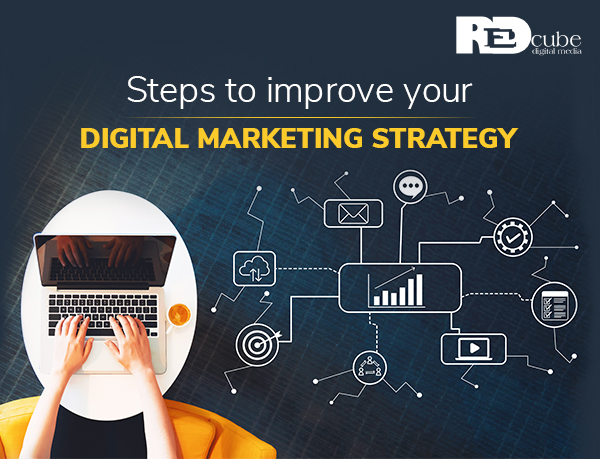A digital marketing strategy is a master plan or blueprint or a series of actions that help you achieve both short and long-term business goals by using online marketing channels. These marketing channels include earned paid and owned media.
Like any other form of marketing, a digital marketing strategy involves:
• Defining customers profiles
• Marketing planning
• Defining marketing objectives
• Aligning customer and marketing goals
• Identifying target markets
• Competitive analysis
• Documentation and communication of marketing strategy
• Managing resources appropriately to achieve business objectives
• Reviewing and optimizing campaign performance
Creating a digital marketing strategy:
1. Build your buyer persona
A buyer persona represents your ideal customers. This representation is based on market research and real data about customers. When creating a buyer persona, you should include customers’ behavior patterns, motivation and goals. More the details, better is the marketing strategy.
2. Set the right goals
A good set of digital marketing goals helps you set, review and control performance across all digital marketing activities. The 5s (sale, speak, serve, save and sizzle) of digital marketing is a simple starting point to check if you are covering the whole of digital marketing.
Sale: The fundamental aim of every business should be to increase sales. This can be done by the company opting to sell online. The company can increase online sales by offering free delivery.
Speak: Speaking is all about getting closer to customers and engaging them.
Serve: This means customers services need to be efficient and customer queries should be addressed. This will ensure higher customer satisfaction rates.
Save: It refers to savings made by the businesses by engaging in digital marketing.
Sizzle: It refers to how you build your brand online. It means creating memorable experiences for customers online to make them stick to your brand.
3. Choose the right digital marketing tools
The right digital marketing tools will help you execute a proper marketing strategy. The right digital marketing tools can help you zoom past the competition and take the marketing strategy to the next level. Some of the best tools are Hubspot, Ahrefs, Proof, Survey Anyplace, Yoast, Trello, Canva Business and Asana.
4. Audit the performance of digital marketing campaigns
A digital marketing audit is a systematic and comprehensive process of examining processes and techniques used and performance of digital marketing campaign regularly. Digital gaps, weak spots and loopholes get effectively sorted out as a result of a successful digital marketing audit. Digital marketers need to audit owned, earned and paid media campaigns.
Owned media campaigns: Owned media refers to the digital assets that your company owns. These could be your websites, blogs, etc.
Earned media campaigns: Earned media refers to the recognition you have received through the word of mouth, be it through the content you have posted on the website, the PR work you have done or the customer experience you have enhanced.
Paid media campaigns: Paid media refers to the channel whereon you spent money to woo your potential buyers.
5. Bring it all together to devise a strategy
Once you have planned and researched well and have a solid vision of the elements, it is the time to make up the digital marketing strategy.
Conclusion: As the world of marketing is changing, digital marketers should also change or improve their digital marketing strategy. It is important to be aware of the latest advancements in technology that can make lives of digital marketers much easier.



